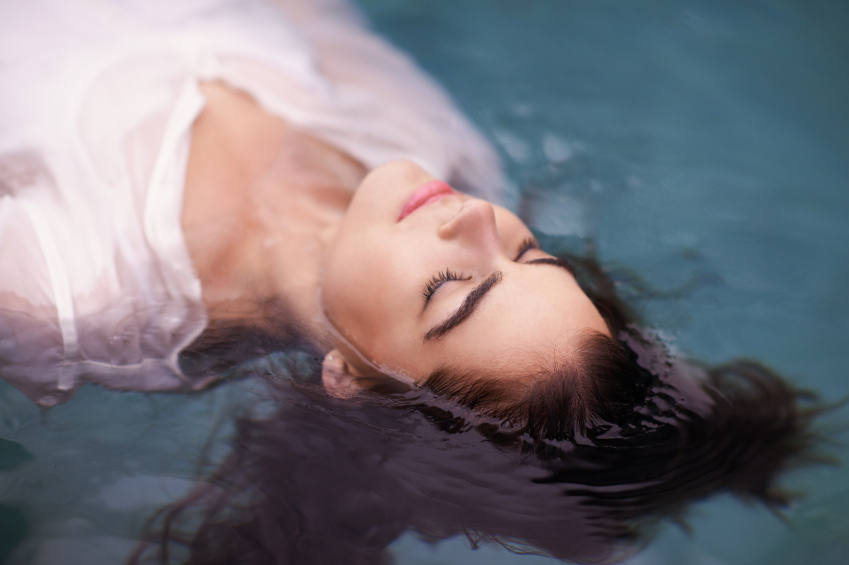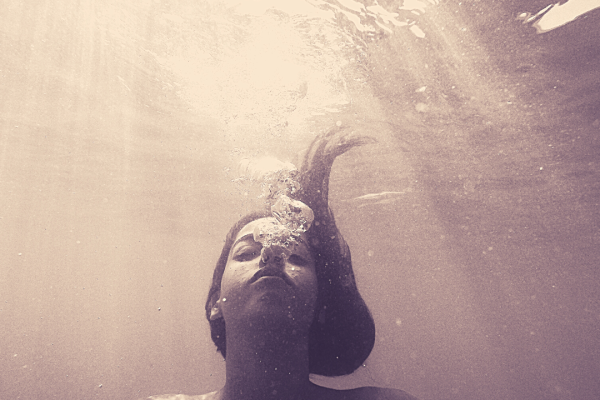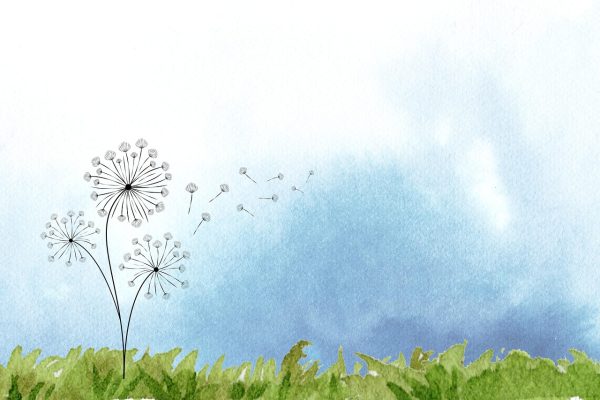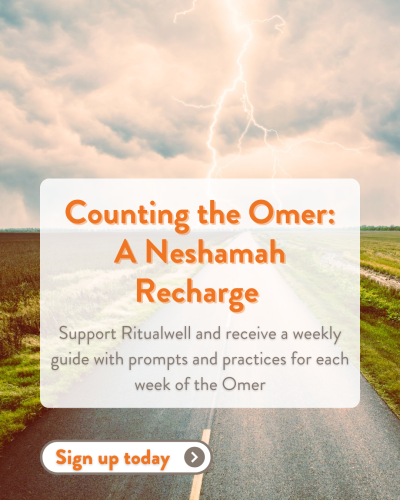When one goes to the mikveh, three blessings are said upon immersing three times. Regardless of the occasion (conversion, before marriage, recovery from cancer, niddah (family purity), etc.) two blessings always remain the same, whereas the third blessing changes depending on the occasion.
First two blessings (except niddah—in the case of niddah only the first blessing is required):
ENTER MIKVEH, TAKE DEEP BREATH, IMMERSE COMPLETELY AND REMAIN UNDER WATER FOR A FEW MOMENTS.
STAND, TAKE A BREATH. AND SAY THE BLESSING:
בָּרוּךְ אַתָּה אֲדֹנָי אֱלֹהֵינוּ מֶלֶךְ הָעוֹלָם אֲשֶׁר קִדְּשָׁנוּ בְּמִצְוֹתָיו וְצִוָּנוּ עַל הַטְבִלָה
Barukh atah Adonay Eloheynu melekh ha-olam, asher kidshanu b’mitzvotav v’tzivanu al ha-t’vilah.
Blessed are you, Eternal God, ruler of the universe, who sanctifies us through mitzvot and has enjoined us concerning immersion.
DUNK A SECOND TIME!
STAND, TAKE A BREATH, AND SAY THE BLESSING:
בָּרוּךְ אַתָּה אֲדֹנָי אֱלֹהֵינוּ מֶלֶךְ הָעוֹלָם, שֶׁהֶחֱיָנוּ וְקִיְּמָנוּ וְהִגִּיעָנוּ לַזְּמָן הַזֶּה
Barukh atah Adonay, Eloheynu melekh ha-olam, shehekheyanu, v’kiy’manu, v’higianu, la-z’man ha-zeh.
Blessed is the Eternal, the God of all creation, who has blessed me with life, sustained me, and enabled me to reach this moment.
Third blessing:
The third and final blessing changes depending on the occasion. A few example are found below:
For conversion:
שְׁמַע יִשְׂרָאֵל, יְיָ אֱלֹהֵינוּ, יְיָ אֶחָֽד
Sh’ma Yisrael, Adonay Eloheynu, Adonay ekhad.
HEAR O ISRAEL, THE ETERNAL OUR GOD, THE ETERNAL IS ONE!
Before marriage:
וְאֵרַשְׂתִּיךְ לִי, לְעוֹלָם; וְאֵרַשְׂתִּיךְ לִי בְּצֶדֶק וּבְמִשְׁפָּט, וּבְחֶסֶד וּבְרַחֲמִים
וְאֵרַשְׂתִּיךְ לִי, בֶּאֱמוּנָה; וְיָדַעַתְּ, אֶת-יְהוָה
Transliteration: V’eyrastikh (v’eyratikha, masculine) li, l’olam. V’eyratikh (v’eyratikha, masculine) li b’tzedek u’v’mishpat, u’v’khesed u’v’rakhamim. V’eyratikh (v’eyratikha, masculine) li, be’emunah, v’da’at et Adonai.
I will betroth you to me, forever. I will betroth you to me with righteousness and with justice, with goodness and with compassion. I will betroth you to me in truth, and we will come to know G-d.
For niddah:
Only the first blessing (v’tzivanu al hatevilah) is said, although the person immerses three times. It is up to the person to choose to say additional verses or kavannot (intentions) preceding the remaining two immersions.














2 Responses
I am designing a home Mikva. can I have words or a prayer etched into a wall or plaque.
Can I have a series of appropriate words displayed
Are there any iconographic items to have or show in a private Mikva?
Thank you for this great question! We have an answer from Rabbi Haviva Ner-David, who is an expert on mikveh: “There is no problem with having words on the wall. One could put the traditional blessing for ritual immersion and the shehechianu, both blessings one says when immersing. But some people think it is inappropriate to have God’s name there because people are nude in the water. So that is up to you. We do have the blessings on cards in our mikveh (Mikveh Shmaya at Kibbutz Hanaton in Israel), although not etched into or hanging on the wall. One could put ה׳ instead of God’s name in the blessing as a kind of compromise. But it’s really up to you, as it is your private mikveh. We have a painting hanging on the wall of our mikveh with a biblical verse. That is another nice option. Perhaps something about water? I am happy to help you brainstorm if you are looking for ideas.”